Corpus Christi Blog
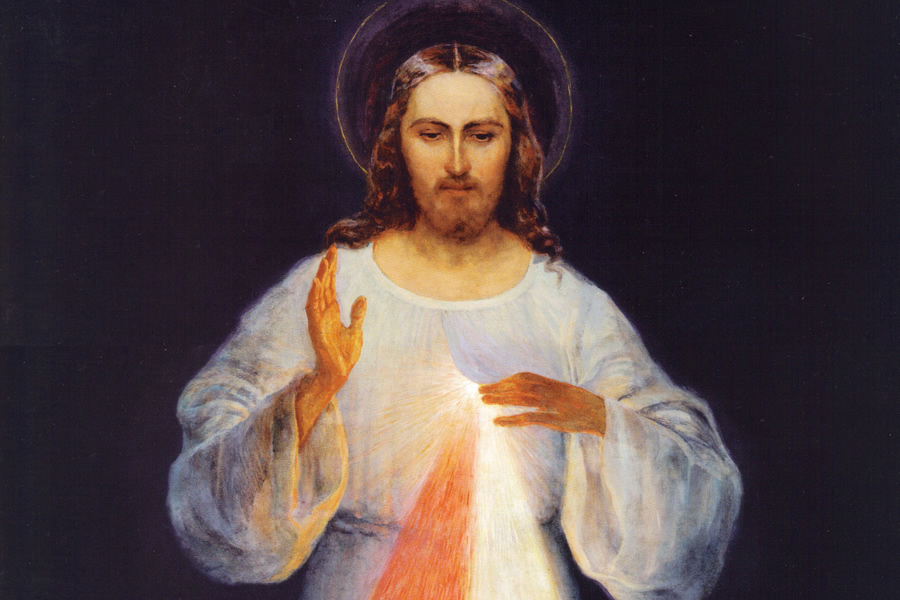
Understanding Indulgences and How to Obtain Them in this Jubilee Year
04-27-2025Weekly ReflectionJen Arnold, M.A.For this Divine Mercy Sunday, Father Rey asked that I discuss the mercy the Church offers in the form of indulgences and the special indulgences offered in this 2025 Jubilee Year of Hope. We will begin with a general explanation of what an indulgence is and what it does for us. Then, we will cover the specific ways to earn indulgences during this Jubilee year as declared by Pope Francis for the entire Church, and how Bishop Dolan has provided opportunities for us here in our diocese.
READ MORE
Easter Sunday
04-20-2025Weekly ReflectionJen Arnold, M.A.Today, we celebrate the greatest feast of the Christian faith. Easter commemorates the Resurrection of our Lord and Savior, Jesus Christ, who suffered and died for our sins so that we might have hope for our salvation and eventual resurrection. Pope Francis has designated 2025 the Jubilee Year of Hope and the faithful as “pilgrims of hope.” In his papal bull, Spes Non Confundit: Bull of Indiction of the Ordinary Jubilee of the Year 2025, the pope says, “The death and resurrection of Jesus is the heart of our faith and the basis of our hope” (#20). In other words, Easter is the very foundation for our hope, which is why this is our greatest celebration, since without hope, what do we have? Thus, Easter of 2025 seems to be the perfect opportunity to unpack why Jesus’ Resurrection is the foundational source of our hope.
READ MORE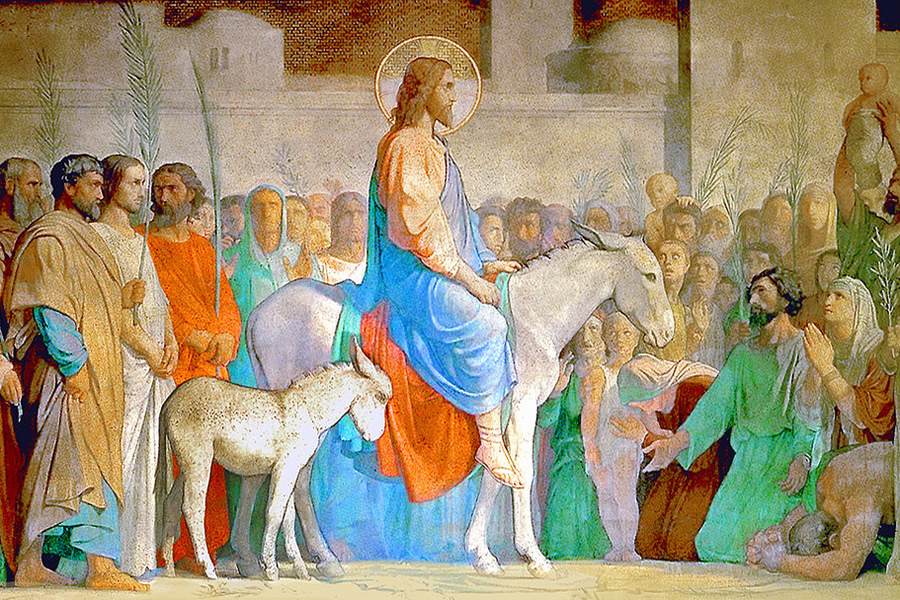
Jesus’ Physical Experience of Palm Sunday
04-13-2025Weekly ReflectionJen Arnold, M.A.Today is Palm Sunday — our Lenten journey is drawing to a close as we enter Holy Week and look forward to Easter. We have been meditating on how Jesus may have experienced his passion and crucifixion through each of his five senses. God, in his divine nature, does not have, nor does he need senses to experience things around him, so they are unique to Jesus’ human nature and can help us relate personally to him. Hopefully, this has been a fruitful meditation series for you, as you have imagined what it might have been like for your divine Savior to see, hear, taste, smell, and feel just as you do. Now, for Palm Sunday, we’ll do the same, covering all five senses for the single event.
READ MORE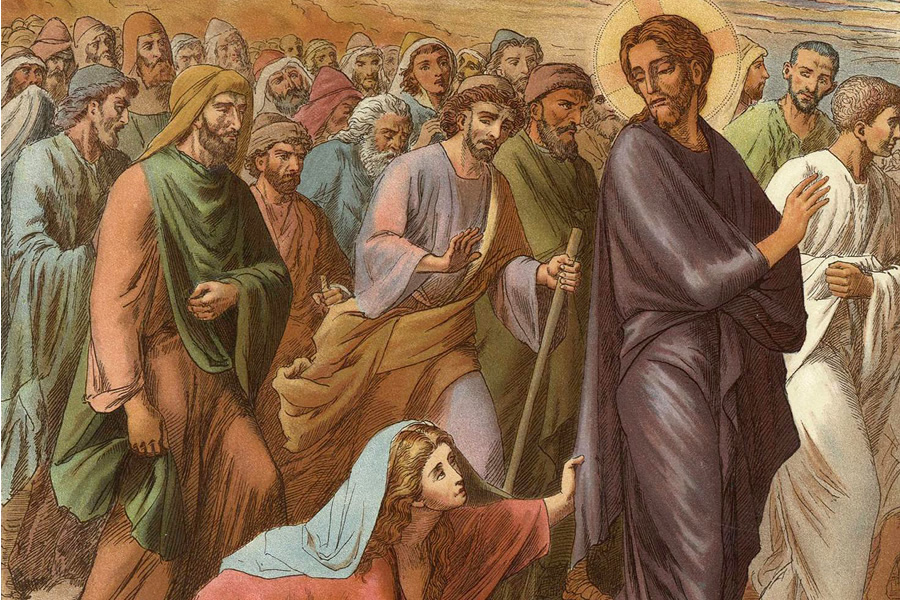
Jesus’ Physical Experience of His Passion — Part 5: Touch
04-06-2025Weekly ReflectionJen Arnold, M.A.We are nearing the end of our Lenten journey and headed toward Holy Week. We have been reflecting on how Jesus might have experienced his final hours from the Last Supper through his crucifixion, using each of his five senses, thus far covering sight, hearing, taste, and smell. Let's now explore and meditate on what Jesus experienced through his sense of touch. While this is arguably the most effortless sense to imagine, it is still helpful to tune out the other senses and focus on what Jesus was feeling through his entire body on his path to Calvary, even just to begin appreciating what he endured for our salvation.
READ MORE
Jesus’ Physical Experience of His Passion — Part 4: Smell
03-30-2025Weekly ReflectionJen Arnold, M.A.As we continue our sensory journey through Lent, we come to the fourth Sunday, where we will meditate on what Jesus may have experienced from the Upper Room to Calvary through his sense of smell. Various scents, fragrances, and aromas often evoke and connect us to memory, emotion, and presence. Whether good or bad, how often does a wafting scent instantly transport you to a particular time and place? Tune out the rest of your senses as best as possible as we focus on the scents Jesus may have encountered on his harrowing journey to the cross.
READ MORE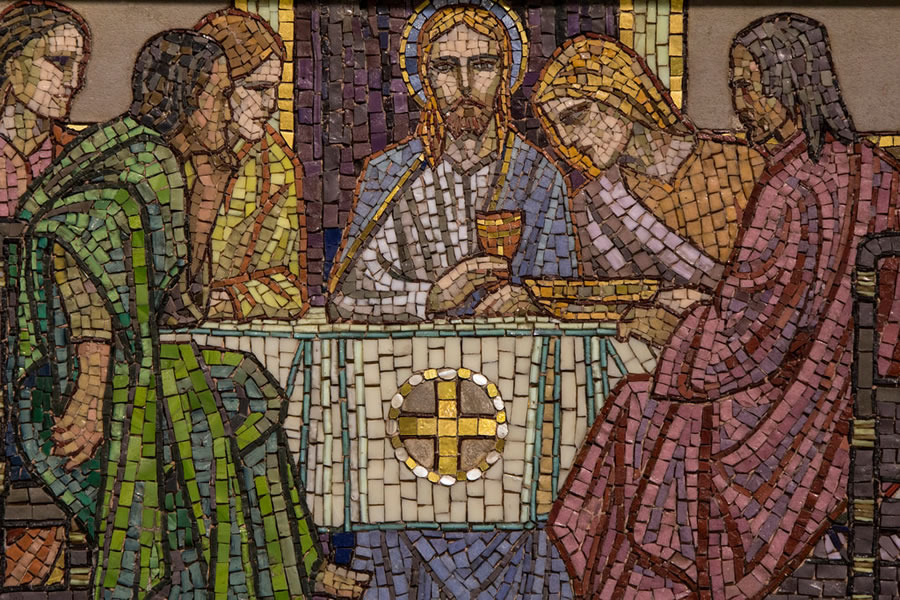
Jesus’ Physical Experience of His Passion — Part 3: Taste
03-23-2025Weekly ReflectionJen Arnold, M.A.This Lent, we have been reflecting on how Jesus may have experienced his Passion through each of his five senses. He is both human and divine, so, even though he is God, when he humbled himself to share in our humanity, he was able to experience the senses in his body and suffered in them just as we do. So far, we have covered sight and hearing. This week, we'll explore how Jesus may have experienced taste, which is probably not something we think about often, especially in terms of His Passion, so take this opportunity to tune out the other senses and meditate on what he may have tasted in his final hours.
READ MORE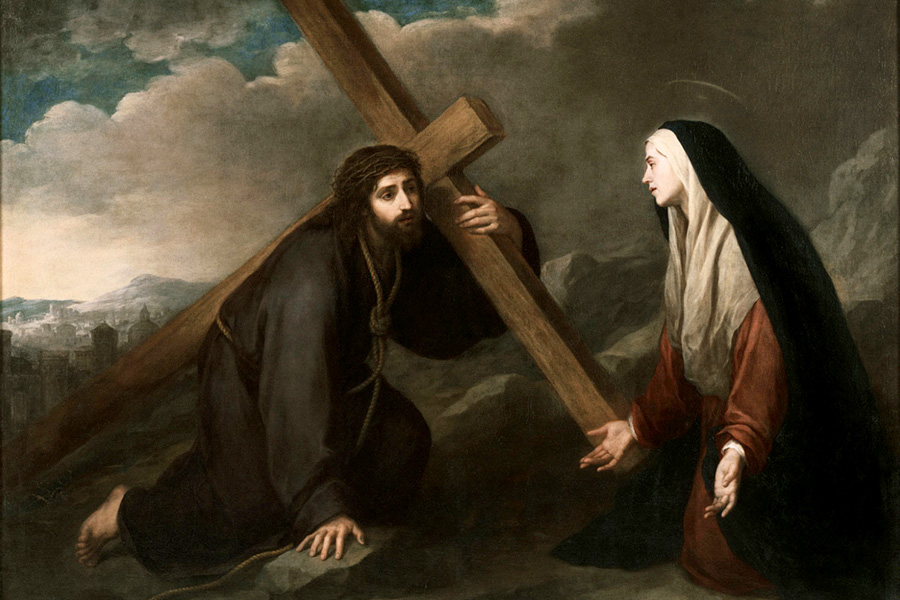
Jesus’ Physical Experience of His Passion — Part 2: Hearin
03-16-2025Weekly ReflectionJen Arnold, M.A.After exploring Jesus’ passion and death through the sense of sight last week, we’ll move on to how he might have experienced those same events through his sense of hearing. As you read through this week’s reflection, try to tune out your other senses as much as possible and focus on the intensity of the sounds involved in Jesus’ redemptive work.
READ MORE
Jesus’ Physical Experience of His Passion — Part 1: Sight
03-09-2025Weekly ReflectionJen Arnold, M.A.For this year's Lenten reflection series, we will contemplate what Jesus might have experienced during his Passion, from the Last Supper through his crucifixion, focusing on each of his five senses — sight, hearing, taste, smell, and touch.
Prior to the Incarnation, God did not have a physical body with which to experience the senses in a way that's unique to humans. Our senses help to inform us of our surroundings, provide information, and help us to make decisions. Through each of our senses, we experience the pleasures and comforts God's creation offers us. Additionally, unlike animals, who respond to stimuli based on instinct, our senses can often be a source of temptation and sin when we let them overpower our reason and will. Further, each of our senses can be a source of suffering for us if they are aggravated or irritated. When one of our senses is compromised, others are heightened to compensate for the loss.
READ MORE
Marian Dogmas & Doctrine — Part 5: Mary’s Spiritual Motherhood
03-02-2025Weekly ReflectionJen Arnold, M.A.We have now reached the fifth and final week of this Marian series. We covered the four Marian dogmas and will now conclude with the one doctrine the Church teaches regarding our Blessed Mother. If you remember from the first week, doctrine is to be held as true and a matter of our Faith to be believed, but it has not yet been elevated to the level of dogma, which could be for any number of reasons. This doctrine defines Mary's spiritual motherhood over the Body of Christ through her three-fold role of co-redemptrix, mediatrix, and advocate.
READ MORE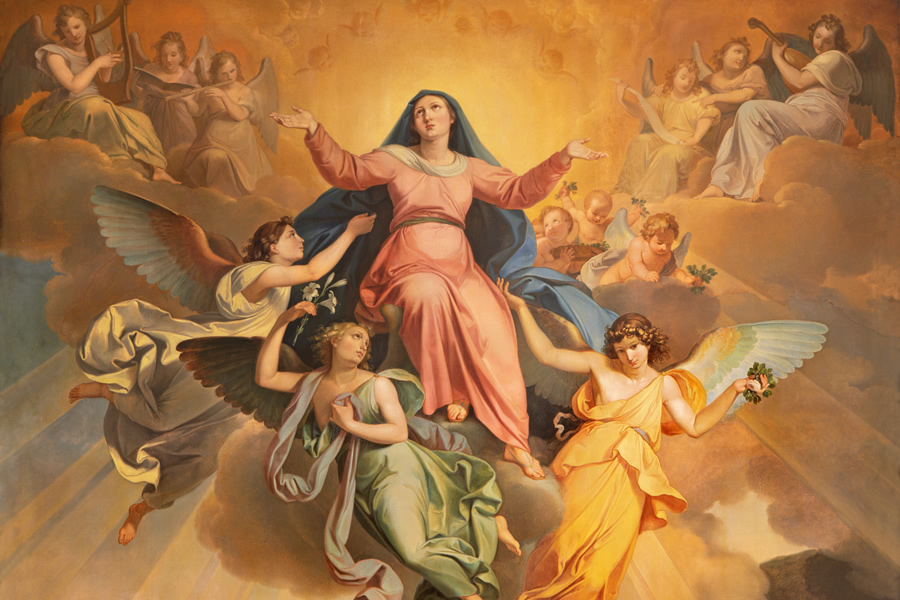
Marian Dogmas & Doctrine — Part 4: The Assumption
02-23-2025Weekly ReflectionJen Arnold, M.A.We have now reached the fourth Marian Dogma as defined and taught by the Magisterium of the Catholic Church — the Assumption of Mary. In a sense, the Assumption is the natural culmination of the previous three dogmas. If you accept, as the Church teaches, that Mary is the Mother of God, that her virginal purity and integrity were kept intact, and that she is the Immaculate Conception, the dogma on the Assumption is nothing less than fitting.
READ MORE
Marian Dogmas & Doctrine — Part 3: The Immaculate Conception
02-16-2025Weekly ReflectionJen Arnold, M.A.We have reached the third week of our Marian series. Today, we will have another in-depth look at the Church’s teachings about Mary as we examine the dogma of the Immaculate Conception.
It is not uncommon for people to think the Immaculate Conception refers to the conception of Jesus Christ in Mary’s womb by the Holy Spirit. That was certainly a miraculous conception, but it is not what we mean by the Immaculate Conception. Using the Magisterium as our first source of authority, on December 8, 1854, Pope Pius IX gave us a very succinct yet meaty definition of the Immaculate Conception in his apostolic constitution entitled Ineffabilis Deus, which reads:
READ MORE
Marian Dogmas & Doctrine — Part 2: Mary’s Perpetual Virginity
02-09-2025Weekly ReflectionJen Arnold, M.A.This week, we'll take a closer look at the second Marian Dogma declared by the Magisterium, which is Mary's perpetual virginity, also called her "three-fold" virginity. This dogma was confirmed at the Second Council of Constantinople in AD 553 and later pronounced by Pope Martin I at the First Lateran Council in AD 640. The term "three-fold virginity" means that Mary was a virgin before the birth of Jesus, during the birth of Jesus, and after the birth of Jesus. Let's look at what each of these terms means in more detail, as well as clarify some common questions about its teaching.
READ MORE
Marian Dogmas & Doctrine — Part 1: Mary as Theotokos
02-02-2025Weekly ReflectionJen Arnold, M.A.Today, the Church celebrates the Presentation of the Lord. According to the Jewish custom of the time, the Law of Moses required the mother to undergo ritual purification for 40 days after giving birth, completed with the sacrifice of a lamb, along with a pigeon or turtledove (cf. Lev 12). For those parents who were too poor to afford a lamb, as in Mary and Joseph’s case, an allowance was made for the sacrifice of two pigeons or two turtledoves instead. Further, all firstborn children were to be consecrated to God in a special way (Exodus 13:2). From the Presentation story, we see that Mary and Joseph cooperated in God's plan for Jesus from the beginning. In this moment, the prophet Simeon addresses Mary directly, highlighting her unique role in her Son’s life and ministry as he prophesies that a sword will pierce her soul.
READ MORE